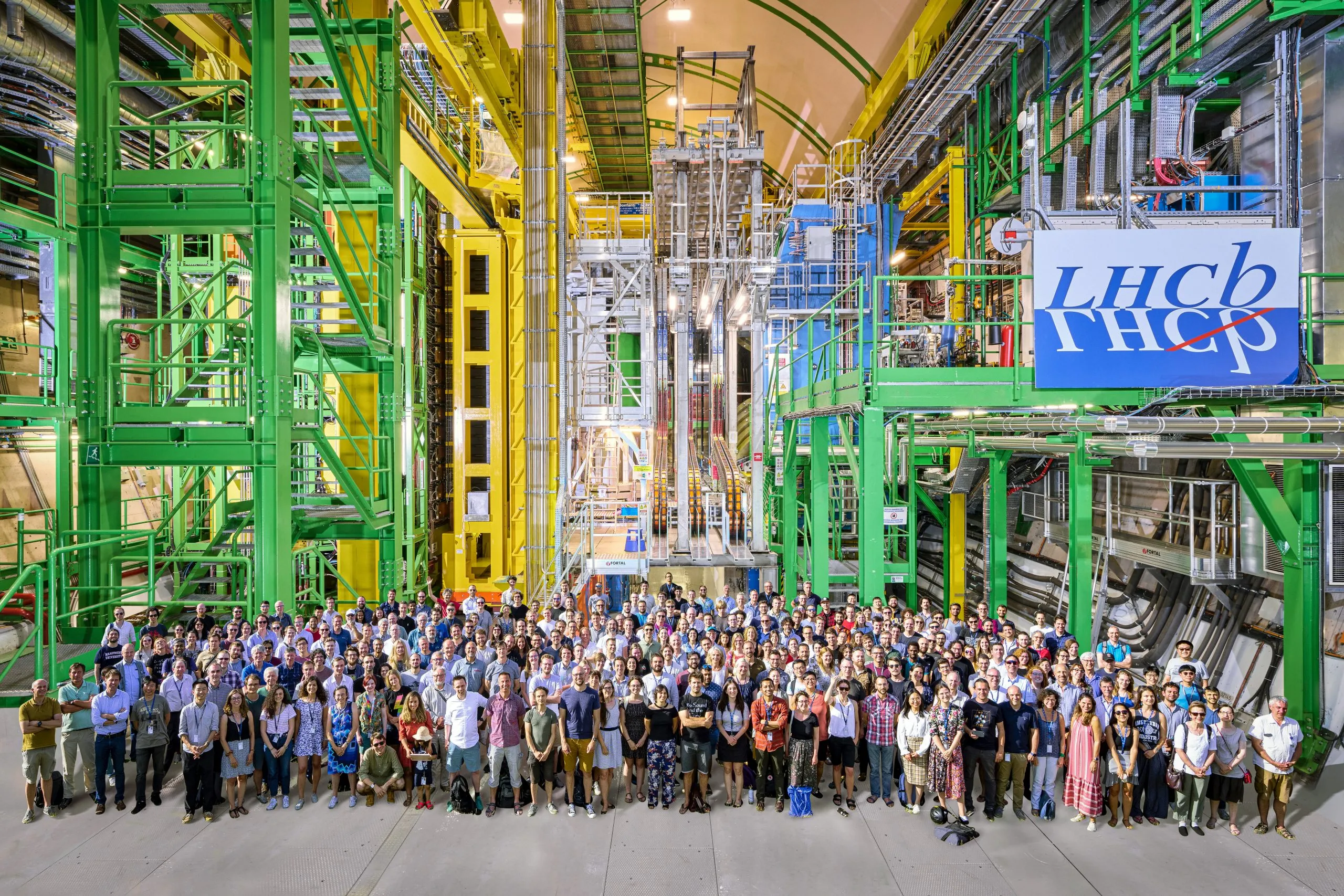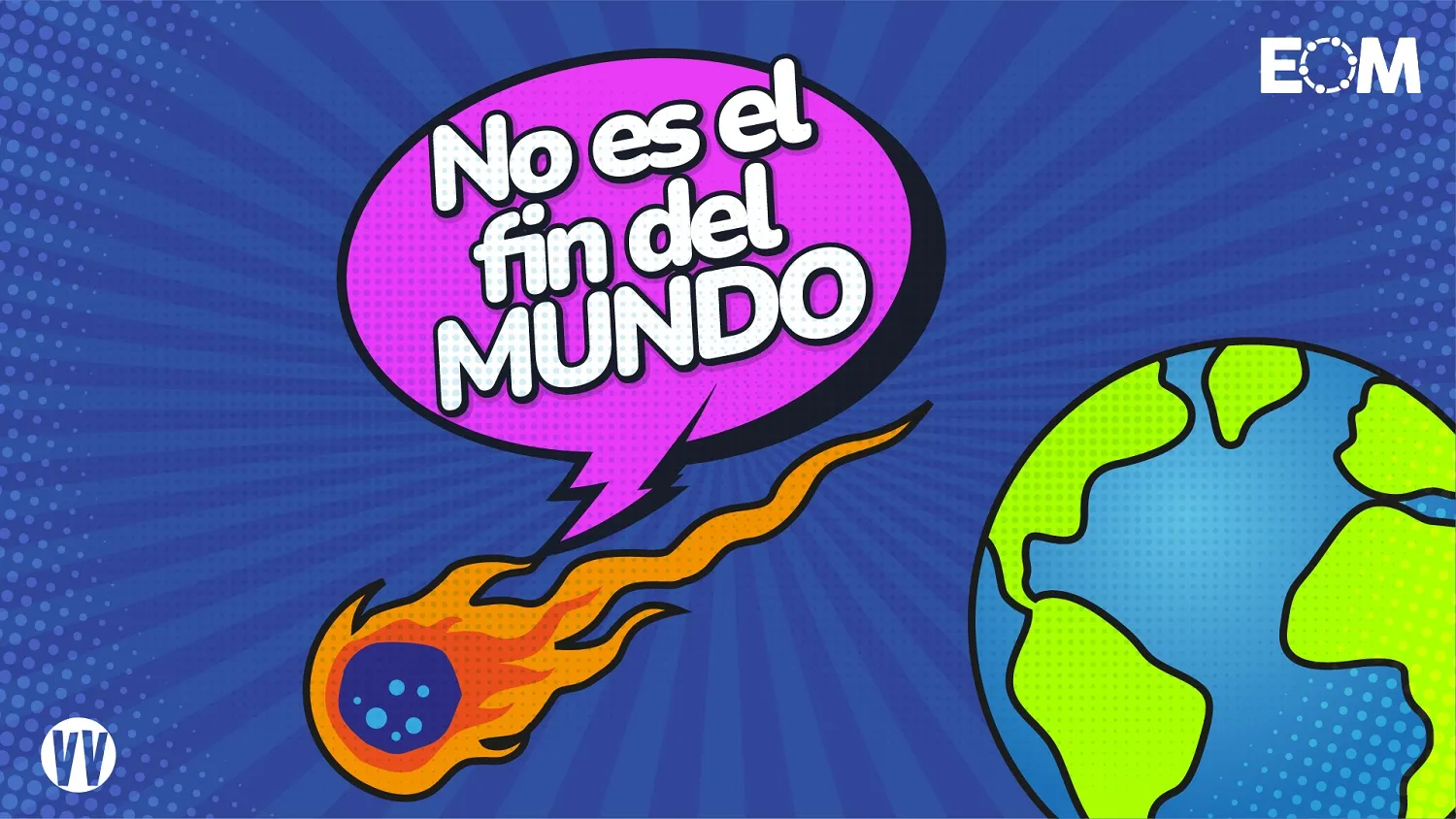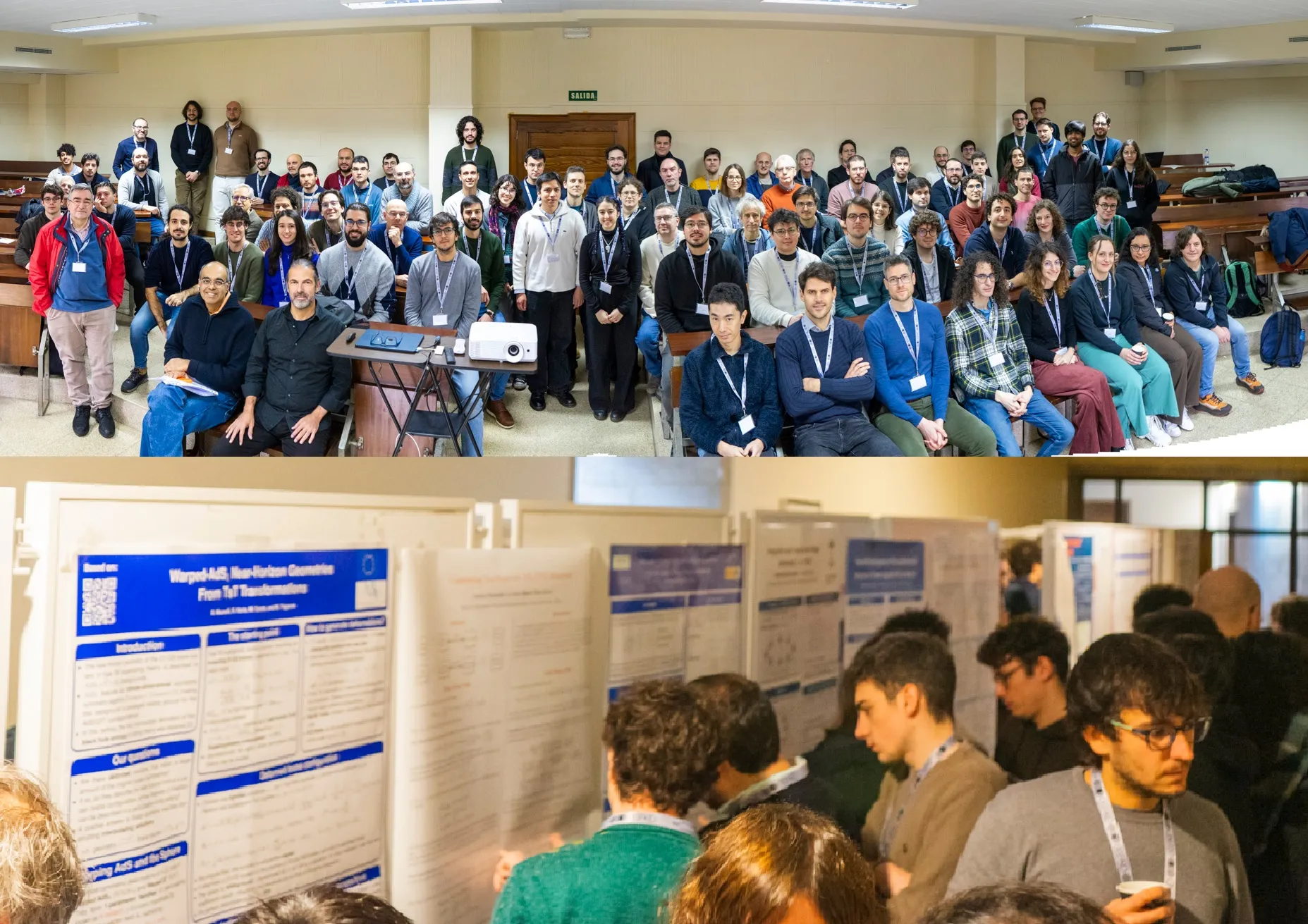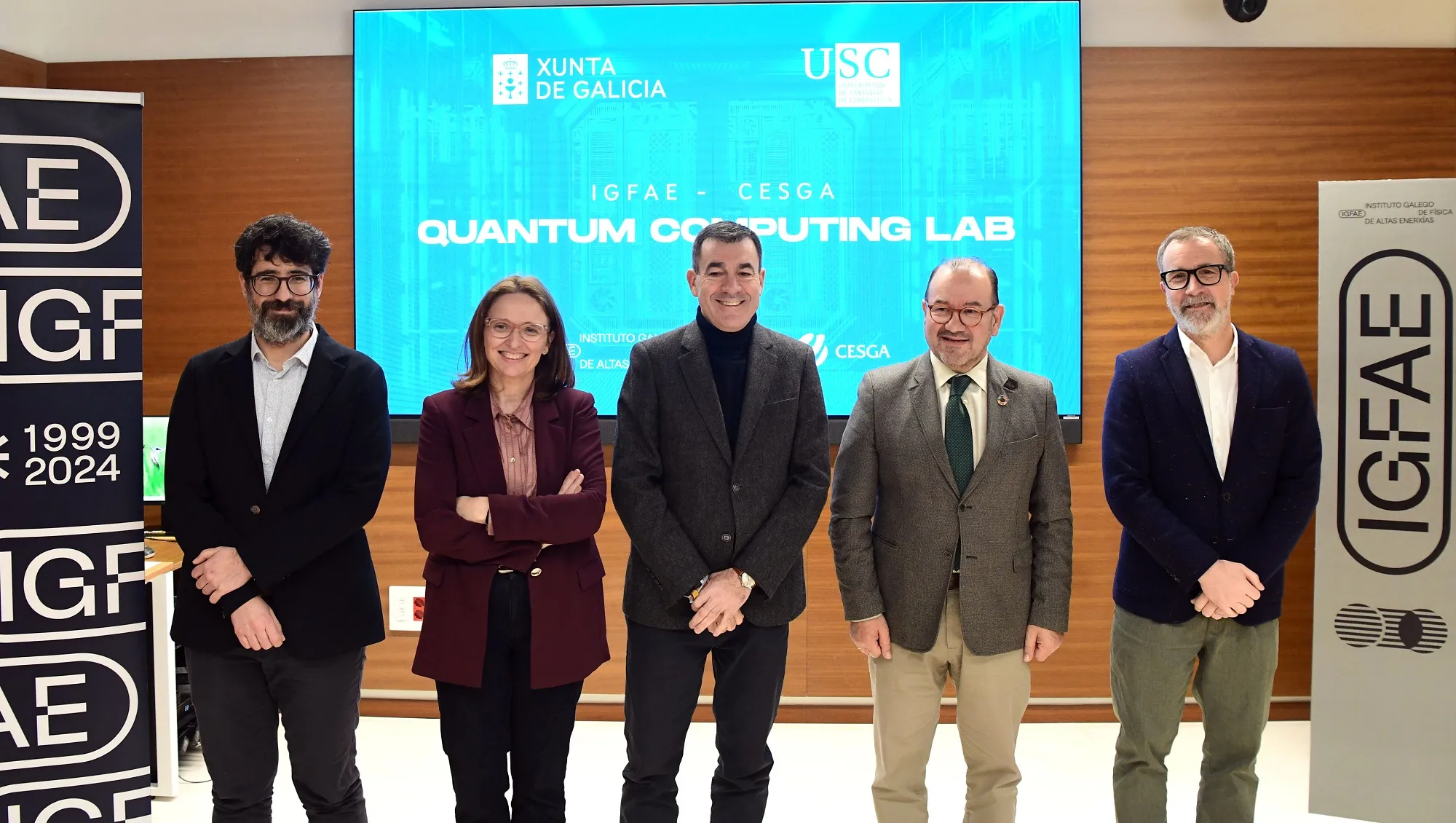The Breakthrough Prizes, known as the “Oscars of Science,” announced the 2025 awards last weekend. In the Fundamental Physics category, the award went to the European Organization for Nuclear Research (CERN) and its four major experiments: ATLAS, CMS, ALICE, and LHCb. The list of awardees (the more than 13,500 who make up these major experimental collaborations) includes more than 30 current members of the Instituto Galego de Física de Altas Enerxías (IGFAE), a research center of the USC and the Xunta de Galicia, as well as a significant number of doctoral students and research staff who have spent part of their careers at the center.
The prize was awarded to the four collaborations for their ““detailed measurements of Higgs boson properties confirming the symmetry-breaking mechanism of mass generation, the discovery of new strongly interacting particles, the study of rare processes and matter-antimatter asymmetry, and the exploration of nature at the shortest distances and most extreme conditions at CERN’s Large Hadron Collider”.
Since the first particle beams began circulating through the LHC in September 2008, the four experiments have tested, with unprecedented precision, the Standard Model and other theories that describe the fundamental elements of matter and its interactions. Among other milestones, CERN’s facilities enabled the experimental detection of the Higgs boson in 2012. In the coming years, with the planned upgrade starting in 2030, the LHC is expected to continue pushing the boundaries of fundamental physics.
CERN Director-General Fabiola Gianotti stated: “I am extremely proud to see the extraordinary accomplishments of the LHC collaborations honoured with this prestigious Prize” referring to the “collective efforts, dedication, competence and hard work of thousands of people from all over the world who contribute daily to pushing the boundaries of human knowledge”.
The IGFAE at CERN
Currently, the IGFAE team at LHCb is composed of 33 people: eight senior researchers, three postdocs, fifteen PhD students, one PhD engineer, three technicians, and three Master’s students.
The Institute is one of the founding members of the LHCb experiment and currently represents the largest Spanish team in this experiment, also holding senior positions in the collaboration. Among other aspects, the IGFAE has played a leading role in the design, construction, and installation of LHCb detectors such as the Silicon Tracker and the Vertex Locator (VELO), essential for recording and analyzing particle collisions.
In addition to the experimental aspect, the Institute’s staff maintains close collaboration with CERN from a theoretical perspective, in areas of study such as quantum chromodynamics, neutrinos, and nuclear physics. Similarly, IGFAE staff participate in discussion groups for future CERN projects, as well as in the European Strategy for Particle Physics.
Breakthrough Prize
The Breakthrough Prize for CERN, worth three million euros, will be used, according to the experiments’ leaders, to offer grants for doctoral students from member institutes to spend research time at CERN, giving the students experience working at the forefront of science and new expertise to bring back to their home countries and regions. Currently, more than 13,500 people from 70 countries participate in ATLAS, CMS, ALICE, and LHCb.
The awards were founded in 2012, driven by Google founder Sergey Brin, Facebook founder Mark Zuckerberg and his partner Priscilla Chan, scientist and entrepreneur Anne Wojcicki, and philanthropists Yuri and Julia Milner. They recognize basic science research with a global impact in the Life Sciences, Fundamental Physics, and Mathematics categories, in addition to nine New Horizon Prizes for emerging scientific talent.
IGFAE staff have been awarded the Breakthrough Prize in this category again nine years later. In 2016 it was given to researchers Juan Calderón Bustillo and Thomas Dent, as part of the LIGO collaboration that first detected gravitational waves in 2015, 100 years after Albert Einstein’s prediction.
About IGFAE
The Instituto Galego de Física de Altas Enerxías (IGFAE) is a research center established in 1999 by the University of Santiago de Compostela and the Xunta de Galicia. Its mission is to coordinate and promote scientific and technical research in High Energy, Particle, and Nuclear Physics, as well as in related fields such as Astrophysics, Medical Physics, and Instrumentation. The institute hosts around 140 members involved in major experimental facilities such as CERN, the Pierre Auger Observatory, LIGO, and GSI/FAIR, among others.
The IGFAE has been accredited as a María de Maeztu Unit of Excellence by the Spanish Government’s State Research Agency. It is also part of the CIGUS network of the Regional Government of Galicia, which accredits the quality and impact of its research. The center is co-financed by the European Union through the Galicia Feder 2021-2027 Program.






